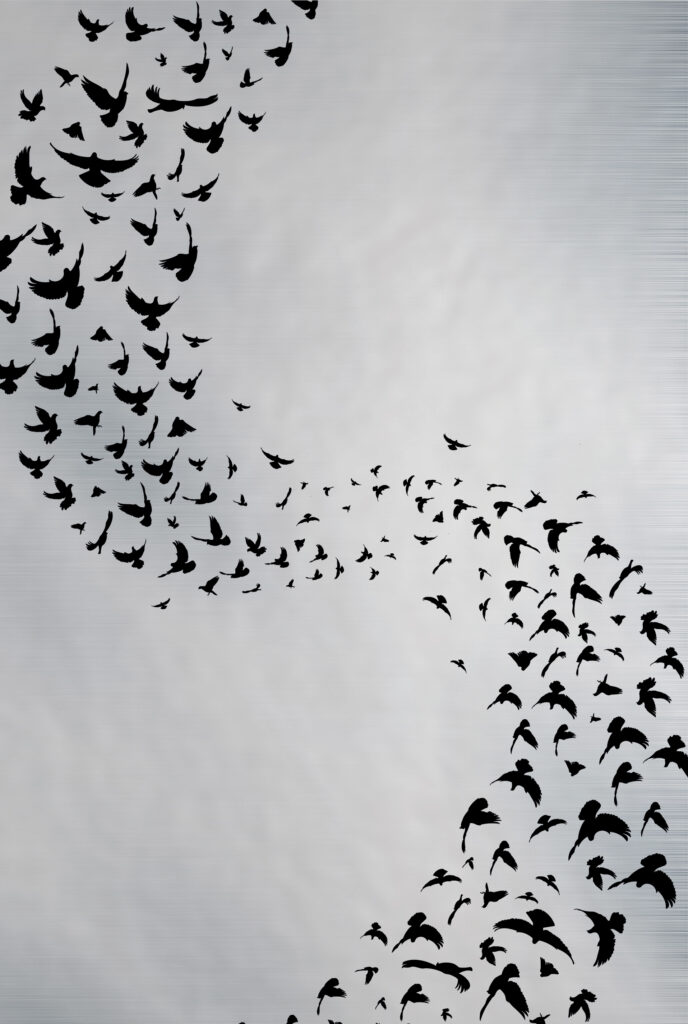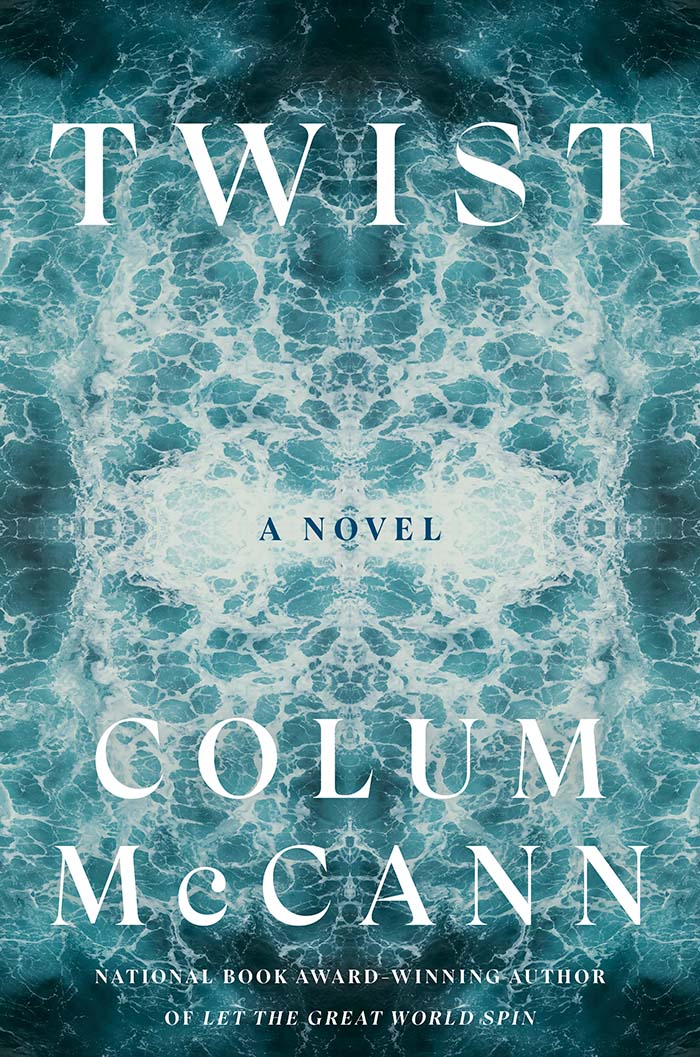
Praise for Apeirogon
“Every significant novel is an act of reckless originality. Colum McCann’s Apeirogon is nothing like any book you’ve ever read. Think of reading David Mitchell’s Cloud Atlas, Anne Carson’s Autobiography of Red, or George Saunders’s Lincoln in the Bardo for the first time. Think of discovering an entirely unprecedented, and profoundly true, narrative form. Think about feeling that the very idea of the novel, of what it can be and what it’s capable of containing, has been expanded, forever.”—Michael Cunningham, New York Times bestselling author of The Snow Queen
‘This is a wondrous book. In an accretion of splendid detail, McCann writes with an amazing abundance of humanity as he describes the age old story of inhumanity to man. The affect is absolutely staggering, it will bring you to your knees. Writing at the top of his game, McCann brings us a book that we sorely need. It left me hopeful; this is its gift. What a read — !’ — Elizabeth Strout, Pulitzer prize-winning author of Olive Kitteredge
Devotees of Colum McCann will find Apeirogon teeming with everything they have come to expect from his work: gorgeous prose; a sweeping look at the paradoxical relationship between history and private life; a penetrating examination of the deficiencies and marvels of the human spirit. However, most prominent among the many, many ways Apeirogon triumphs is the vertiginous risk he takes with the novel form, disrupting time and space, so that the book appears to cohere, layer upon layer, out of thin air. Apeirogon is visceral and devastating, yes; but it is also propulsive, muscular, swerving through details of life—real and imagined—with urgency, borne along on prose that is some of McCann’s finest, fully displaying his powers as a storyteller of just about supernatural ability. This book will break your heart and make you rethink how storytelling works. Tea Obreht, author of Inland and Tiger’s Wife
“A quite extraordinary novel . . . Colum McCann has found the form and voice to tell the most complex of stories, with an unexpected friendship between two men at its powerfully beating heart.”—Kamila Shamsie, prize-winning author of Home Fire
“Apeirogon is a brilliant dramatization of the tensions behind a universal problem, the contentious ownership of land and the location and nature of its borders. This novel arrives at a crucial time for us in the history of the world.”—Barry Lopez, National Book Award–winning author of Outside
“Colum McCann loves a high-wire act, and Apeirogon is a powerful, political tightrope walk of a novel. It’s the story of modern Israel and the story of modern Palestine. This beautiful, deeply felt book is first and foremost an extraordinary act of listening.”—Nathan Englander, PEN/Malamud Award–winning author of Dinner at the Center of the Earth
“Distinguished by empathy and intelligence, this transformative novel marks a new threshold of writing about the conflict. Colum McCann manages to take it all in without prejudice and with profound feeling for the suffering of all sides. Apeirogon will have a potent effect on all those who read it and, remarkably, could lead to great consequences for the future of this place.”—Raja Shehadeh, author of Palestinian Walks
“A work of incredible magnitude . . . McCann finds the emotional accuracy, the sensitivity, and the beauty to tell the heartbreaking reality of life in Israel-Palestine, while allowing readers a glimmer of necessary hope. Apeirogon is greater than a novel in more than one sense, and will both touch and enrich readers, wherever they live and whatever they know about the region.”—Assaf Gavron, author of The Hilltop
Apeirogon is a novel of profound empathy with the struggle of ordinary people in conflict. Without moral judgement McCann writes of ruthless oppression and it’s opposition; of two fathers from either side of the divide who are united in grief by personal tragedy. McCann reminds us that at the heart of conflict is hatred, the beast we have not learned yet to tame. The local is the universal without walls and this novel is the story of us all. The mirror he holds up is a stark truthful one and we will see ourselves reflected if we care to look.
A work of art changes the way we see the world often by forcing us to feel emotions we might rather not confront. McCann shows how the seemingly irreconcilable and hopeless may be resolved if we have the courage to free ourselves from the cages of hatred and violence. We achieve this through compassion for each other and faith in our capacity for love and forgiveness, and by recognizing our shared humanity.
This is a stunningly well written book. Courageous and necessary, truthful and ultimately hopeful, this may be Colum McCann’s masterpiece. –– Gabriel Byrne, actor, director, author
______________________________________________________________________
KIRKUS STARRED REVIEW
An ambitious novel about an Israeli, a Palestinian, and the grief they share in common. Rami Elhanan and Bassam Aramin both lose their daughters when the girls are still young. Rami’s Smadar dies in an explosion caused by suicide bombers; Bassam’s Abir is killed by a rubber bullet. Rami is Israeli, Bassam Palestinian. They both become advocates for peace in the Middle East. McCann’s (Thirteen Ways of Looking, 2015, etc.) latest novel is a soaring, ambitious triumph: It tells the stories of Rami and Bassam, both based on real people, and their daughters and their land and much else, besides. The novel is splintered into short, numbered segments that count up to 500 before crawling back down to 1. The effect is kaleidoscopic. McCann wheels outward in a widening circuit, not unlike the birds that form a central metaphor that recurs throughout the book. Some segments describe Israeli-Palestinian politics; others are composed of photographs; still others are made up entirely of quotes from figures as disparate as Picasso and Mahmoud Darwish. The result is a sprawling masterpiece …. McCann’s latest novel might be his finest yet.
PUBLISHERS WEEKLY STARRED REVIEW
National Book Award–winner McCann (Let the Great World Spin) bases this masterful novel on the lives of two real men working together toward Middle Eastern peace. Rami Elhanan, 67 on the single day of 2016 on which the main narrative takes place, is a graphic designer and Israeli military veteran. In September 1997, his 13-year-old daughter, Smadar, was killed in a Jerusalem suicide bombing. His need for revenge fades when he joins the Parents’ Circle, whose members, of many nationalities and religions, have all lost a child in the Israel/Palestine conflict. Nineteen years younger than Elhanan, Palestinian Bassam Aramin is jailed in 1985, at 17, for resisting the Israeli occupiers in Hebron, where he’s raised. During his imprisonment, writings by Gandhi, among others, and friendship with one of the Israeli guards convince him of the power of nonviolence. Released after seven years, he helps found Combatants for Peace, which brings Palestinian and Israeli fighters—among them Elhanan’s son, who introduces the two men—together for dialogue. The fatal 2005 shooting of Bassam’s 10-year-old daughter, Abir, by an Israeli border guard doesn’t shake his belief that Israelis and Palestinians share “an equity of pain”; he and Elhanan begin meeting daily, using their daughters’ stories to become international advocates for peace. The book’s title is a reference to a polygon with a countable but infinite number of sides, and McCann evokes the experience of its protagonists and their region through 1,001 brief numbered segments that incorporate sequences in the men’s own voices and interconnect topics including bullet manufacturing, Jorge Luis Borges, and birds. Balancing its dazzling intellectual breadth with moments of searing intimacy, this is a transformative vision of a historic conflict and a triumph of the novelist’s art. Agent: Sarah Chalfant, Wylie Agency. (Feb.)
BOOKLIST STARRED REVIEW
An apeirogon is “a shape with a countably infinite number of sides,” embodying the complexity McCann seeks to express in this tragic and transporting “hybrid novel.” In his National Book Award-winner, Let the Great World Spin (2009), two women from opposite ends of the social spectrum lost sons in the Vietnam War. Here McCann portrays two fathers, one Palestinian, the other Israeli, each mourning a young daughter who died in the region’s persistent, senseless bloodshed. Bassam Aramin and Rami Elhanan are real people, and the stories of how Abir Aramin and Smadar Elhanan were killed, and of how Bassam and Rami became peace activists and border-defying friends, are true. McCann meshes the actual and the imagined in concise, numbered passages totaling 1,001 in homage to the Arabian Nights. Each is exquisite and haunting, many are harrowing, and together they form an entrancing and unnerving associative collage of fact, memory, observation, and invention. He discovers startling connections while pondering weaponry and poetry, migrating birds and explorers, torture and checkpoints, the music of John Cage and Phillip Petit walking for peace on a tightrope over Jerusalem. McCann performs his own epic balancing act between life and art, writing with stunning lyricism and fluent empathy as he traces the ripple effects of violence and grief, beauty, and the miraculous power of friendship and love, valor and truth.
AMAZON BOOK REVIEW “BOOKS WE CAN’T WAIT FOR”
Colum McCann’s novel, Let the Great World Spin, was a kaleidoscopic tale of New Yorkers in the 1970s that became an instant bestseller, won a National Book Award, and was named a Best Book of the Year by the Amazon Books editors, among many other honors. Ten years later, Colum McCann has pushed the limits of kaleidoscopic. In Apeirogon, McCann unfurls the story of two fathers, one Palestinian and one Israeli, who have both lost their daughters to the violence that surrounds them. Over the course of the day, these two men’s lives intertwine as they attempt to use their grief as a weapon for peace. Rooted in history, this novel is a soaring and revelatory reading experience that is at once intimate and vast, heart-breaking and hopeful, and yes, kaleidoscopic (in the best way). (February 25, 2020) —Al Woodworth
